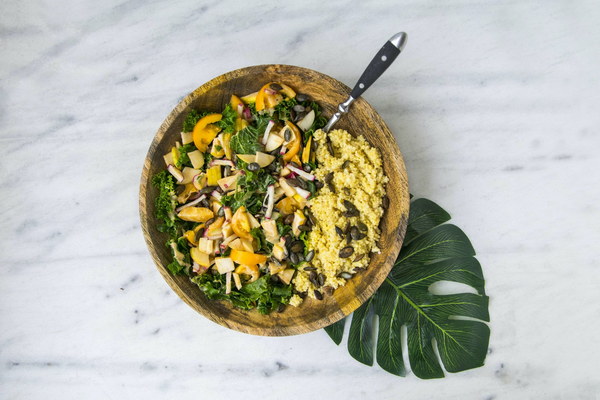Nurturing Your 30s A Comprehensive Guide to Women's Health and Wellness
As women enter their 30s, the landscape of their health and wellness takes on a new chapter. This is a pivotal decade where the body begins to exhibit signs of aging, and the importance of proactive health maintenance cannot be overstated. Here's a comprehensive guide to help navigate the journey of women's health and wellness in their 30s.
Understanding the Changes
The 30s mark a transition period in a woman's life. Hormonal fluctuations, increased stress levels, and lifestyle changes can all impact health. It's essential to recognize these changes and address them with the right strategies.
1. Hormonal Shifts: Perimenopause can start as early as the 30s, leading to mood swings, irregular periods, and hot flashes. Managing stress and maintaining a balanced diet can help mitigate these symptoms.
2. Increased Stress: The demands of career, family, and personal life can take a toll on mental health. Practices such as mindfulness, meditation, and regular exercise can help manage stress levels.
3. Lifestyle Changes: With the responsibilities of adulthood, it's easy to neglect personal health. Prioritizing self-care and adopting healthier habits is crucial.
Nutrition for Energy and Health
A balanced diet is the foundation of good health. Here are some key nutritional considerations for women in their 30s:

1. Protein: Essential for muscle repair and growth, protein is especially important as women age. Incorporate lean meats, fish, eggs, dairy, and plant-based options like lentils, chickpeas, and tofu into your diet.
2. Fiber: Helps maintain digestive health and can aid in weight management. Aim for a variety of fruits, vegetables, whole grains, and legumes.
3. Healthy Fats: Essential for hormonal balance and brain health, healthy fats can be found in avocados, nuts, seeds, and olive oil.
4. Vitamins and Minerals: Certain vitamins and minerals are vital for women's health. Consider supplements like omega-3 fatty acids, vitamin D, calcium, and iron if needed.
Physical Activity and Exercise
Regular physical activity is not only good for the body but also for the mind. Here are some exercise recommendations:
1. Cardio: Helps maintain heart health and can aid in weight management. Aim for at least 150 minutes of moderate-intensity cardio per week.
2. Strength Training: Building muscle mass can help maintain bone density and metabolism. Include strength training exercises in your routine at least twice a week.
3. Flexibility: Incorporate stretching or yoga to improve flexibility and reduce the risk of injury.
Sleep and Rest
Quality sleep is crucial for overall health. Aim for 7-9 hours of sleep per night. Establishing a bedtime routine, avoiding screens before bed, and creating a comfortable sleep environment can help improve sleep quality.
Mental Health and Self-Care
Taking care of mental health is as important as physical health. Here are some tips:
1. Mindfulness and Meditation: These practices can reduce stress and improve focus.
2. Social Connections: Maintain strong relationships with friends and family for emotional support.
3. Hobbies and Interests: Engaging in activities you love can provide a sense of fulfillment and reduce stress.
Regular Health Check-ups
As women age, regular health check-ups become even more important. Schedule appointments with your healthcare provider to monitor:
1. Mammograms: For breast health, starting at age 40 or earlier if you have a family history of breast cancer.
2. Bone Density Tests: To assess the risk of osteoporosis, particularly if you have a family history or other risk factors.
3. Cervical Cancer Screenings: Continue with regular Pap smears and HPV tests as recommended by your healthcare provider.
In conclusion, the 30s are a time of transition and change for women's health. By understanding the physiological and psychological shifts, adopting a balanced diet, engaging in regular physical activity, prioritizing sleep and rest, focusing on mental health, and maintaining regular health check-ups, women can ensure they are taking the necessary steps to nurture their bodies and minds as they enter this new phase of life.





![Discover the Healing Delights at Cixi's Traditional Nourishing Cuisine, Located at [Address]](http://img.bluepurple.cn/a/养生/153/Discover-the-Healing-Delights-at-Cixis-Traditional-Nourishing-Cuisine-Located-at-Address.jpg)



